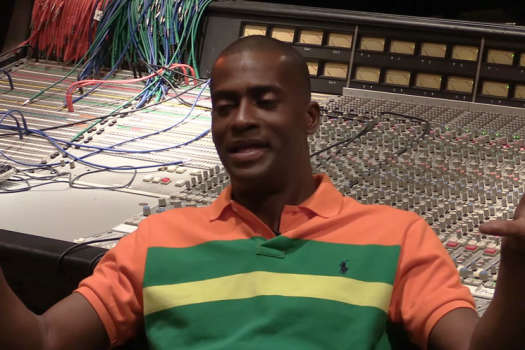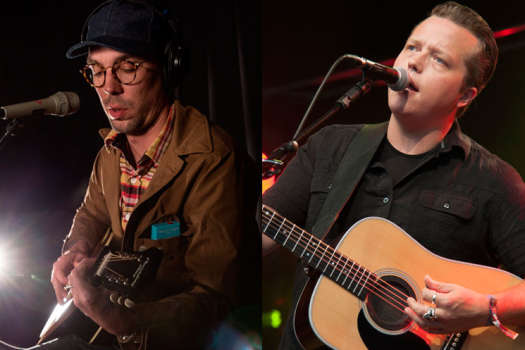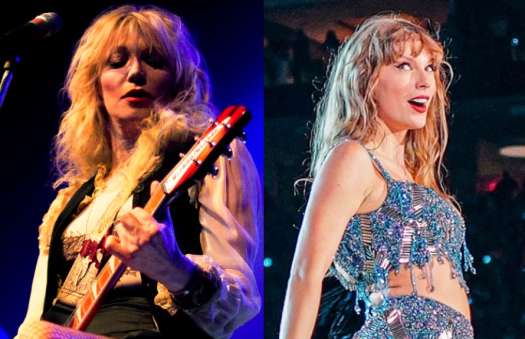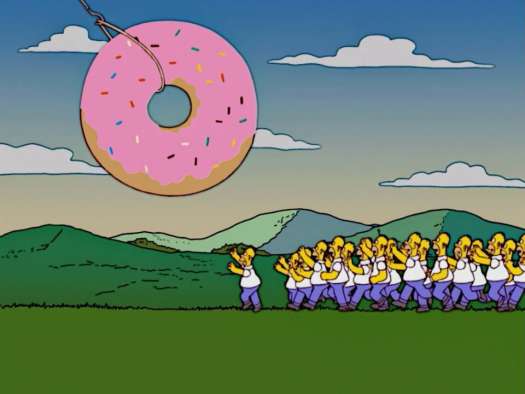Like tendrils of smoke, they snake through from the back of the room toward the stage. Each one, white robed; many of them, long-haired hippies puffed proud by the courage of their convictions this is peace, love and understanding as punk rock rebellion. It's the ultimate fuck you to attitude-crippled masses: why don't we all just love each other and get along? Dallas, TX's Polyphonic Spree have made their burgeoning reputation on these two hours, when 24 musicians with band camp level skills and grins as wide as the Joker pogo delightedly through a series of orchestral pop epics. The Spree rose from the ashes of Tripping Daisy; its front-man, Tim DeLaughter came through the fire of the 90s alternative scene a changed man with a fresh perspective. Now leading these nightly "revival" meetings the only missing elements were a temporary big top tent and a plant in the audience to come up and be "healed" DeLaughter has renewed his lease on life and it shows in his sermons, more stoned than brimstone. Seemingly held together only tentatively by the rhythm section and conducted by the flailing limbs of DeLaughter, the various elements ten singers, a harpist, several horn players, a violinist simply wander in and out as they please, like high school burnouts in shop class. When it should be indulgent, it's delightful; when it should annoy, it amuses; when it should collapse under the weight of its own ambition, it soars. Don't ask the brainwashed for the formula I'm just one of the smiling, clapping masses thinking the Kool Aid looks really good. Can you take me through the evolution of the live show? Trombonist James Reimer: When I first started, it was a lot more sedate. Tim [DeLaughter] played guitar and stood on the side of the stage. There were constant visual images projected onto the band; the white robes acted as a screen. Tim decided to alleviate himself of guitar-playing duties and concentrate on being the conductor, which is when it really started to push forward into the zaniness that it's become. Was the "show" part of the original conception? The original intent was to create a sound. In the 60s and 70s, records were really deep, they had a lot of instruments on them. That's what we were trying to recreate in a live setting. How the show came about is still a little confusing to most of us. It will be hard to make any money. Have you considered stripping down to a smaller touring unit? Labels have been trying to get us to do that since they became interested in us. Every time, we've told them no it's all or nothing. If we were in it for the money, we're in the wrong band. We'd be trying to find away to get rid of about 20 people. That's not anybody's intention.
The Polyphonic Spree
Lee's Palace, Toronto ON - September 30, 2003
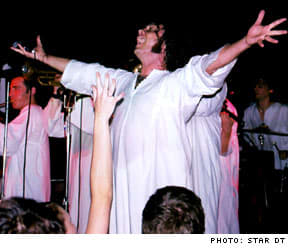
BY James KeastPublished Jan 1, 2006
